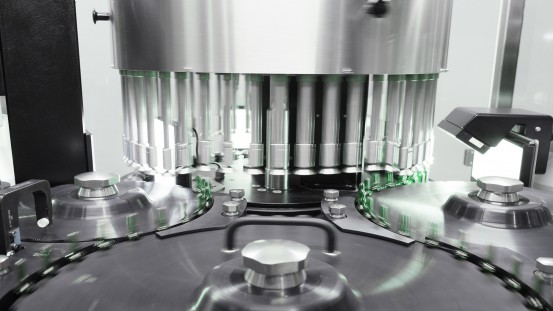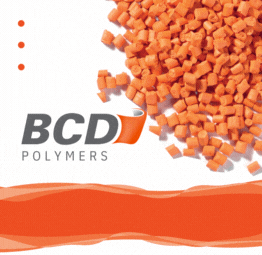Flexible Filling Portfolio: the modular small batch solutions from Syntegon
At the Virtual Show, Syntegon presents its new Flexible Filling Portfolio. "The individually configurable, modular machine concept for processing small and medium batches is the answer to the increasing demand for drugs for smaller target groups, for example in the treatment of cancer," explains Klaus Ullherr, senior product manager at Syntegon. "The modular approach bundles our entire line competence for liquid pharmaceuticals and offers our customers maximum flexibility". Whether syringes, vials or cartridges: pharmaceutical manufacturers can select the different modules individually and obtain a filling line completely tailored to their needs, including an integrated isolator for aseptic and high-potent active ingredients – and benefit from more than 25 years of experience of the system supplier for machines and isolators.
Micro Batch: robotic competence on the smallest scale
For even smaller batches, Syntegon presents a concept study for the processing of aseptic and high-potent micro batches, which was developed in cooperation with a long-standing customer. "For very small batches, the focus is not on output, but on loss-free filling and fast batch changes," Ullherr explains. "The biggest challenge was to design the isolator of the production cell without glove ports, which requires an extremely high degree of automation." The result is a highly flexible and fully automated production cell with the smallest possible dimensions and a complete batch-to-batch changeover of less than two hours.
Filling & Capping – new monobloc solution
Another premiere at the Virtual Show: the new version of the FLK 9000 piston filling machine, a monobloc solution consisting of the linear FLK filling and the rotary VRM capping machine for liquid pharmaceutical and cosmetic filling. The newly developed three-axis drive for the FLK’s filling pipe carrier makes sure the bottles are now continuously filled, before being capped in the synchronously running VRM capping machine. This significantly shortens the length of the line. Furthermore, the filling tubes can now be moved fully automatically to the cleaning position. Improved accessibility to the filling tubes also makes format changes easier. "The monobloc solution combines all the advantages of linear filling with rotary capping technology and fulfils the high demand in the medium output segment from 80 to 150 bpm," says Frank Jansen, head of product management at Syntegon.
SODA: traceable data makes production safer
Pharmaceutical processing lines generate a large amount of diverse data, which often remains unused. "Until now, object-specific data could no longer be assigned to individual batches or containers as soon as they left the machine," Markus Heinz, product manager at Syntegon, explains. The new "Single Object Data Acquisition" (SODA) system from Syntegon provides a remedy: a data matrix code attached to the container or closure contains all object-related and process-specific data of the container and can be read with a scanner. "This means that valuable information collected during production can now be assigned to individual containers and traced in a structured manner. This opens up a wide range of possibilities for our customers to make their production safer and to react individually in case of complaints," says Heinz.
Syntegon and SCHOTT – a smart team
Combined with the Smart Containers from primary packaging manufacturer SCHOTT, the Syntegon SODA system offers a very special advantage: the primary packaging materials are initially provided with a unique data matrix code to ensure traceability throughout the entire manufacturing process. The codes are scanned by cameras that can be used to equip and retrofit filling and closing machines such as the ALF 5000 as well as upstream and downstream equipment. If required, the recorded information can be retrieved and analyzed for each individual container at any time. "The combined know-how of the packaging and the equipment manufacturer provides pharmaceutical producers with unlimited access to valuable production data," says Diana Löber, product manager vials at SCHOTT.
Artificial Intelligence for visual inspection
The use of Artificial Intelligence in visual inspection, one of the most demanding steps in the pharmaceutical manufacturing process, is another major innovation from the software sector. Many industry branches already use the required software solutions and algorithms. Hence, manufacturers of automated visual inspection machines do not necessarily have to develop their own deep learning algorithms or neural networks. In fact, minor adjustments to existing software solutions are sufficient. What’s much more important is the know-how in software implementation and process validation. In contrast to many other industries, the deep learning model in pharmaceutical use must be statically fixed after the development phase and is not allowed to change in order to meet the corresponding validation requirements. Syntegon is currently demonstrating how this can be achieved in several pilot projects together with customers and at the Virtual Show.
Flexible assembly of auto-injectors
Another premiere: the presentation of the modular platform RRA for the assembly of auto-injectors. The advantages include the assembly of different auto-injector types as well as fast, tool-free changeover times of less than two hours. The machine has been specially tailored to current customer requirements: on the one hand, it can react quickly to new market requirements thanks to its high flexibility. On the other hand, the scalable platform is available in both a semi-automated and a fully automated version and can be used for all known auto-injector types. Further adaptations and retrofitting, such as the integration of robotic systems, are easy to realize. In line with Syntegon Technology's pharmaceutical line competence, the RRA can be extended with additional equipment for container handling, inspection, labelling and packaging.



